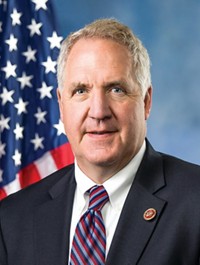Advertisement
Grab your lab coat. Let's get started
Welcome!
Welcome!
Create an account below to get 6 C&EN articles per month, receive newsletters and more - all free.
It seems this is your first time logging in online. Please enter the following information to continue.
As an ACS member you automatically get access to this site. All we need is few more details to create your reading experience.
Not you? Sign in with a different account.
Not you? Sign in with a different account.
ERROR 1
ERROR 1
ERROR 2
ERROR 2
ERROR 2
ERROR 2
ERROR 2
Password and Confirm password must match.
If you have an ACS member number, please enter it here so we can link this account to your membership. (optional)
ERROR 2
ACS values your privacy. By submitting your information, you are gaining access to C&EN and subscribing to our weekly newsletter. We use the information you provide to make your reading experience better, and we will never sell your data to third party members.
Policy
Senate Panel Adopts Chemicals Reform Bill
Congress: Legislation shifts burden of proof for safety to companies
by Cheryl Hogue
July 30, 2012
| A version of this story appeared in
Volume 90, Issue 31

A Senate committee has approved legislation that would fundamentally alter the way the Environmental Protection Agency regulates commercial chemicals. The action marks the first congressional move toward reforming the Toxic Substances Control Act (TSCA), which has remained virtually unchanged since it was signed into law in 1976.
Under the bill (S. 847) adopted last week by the Senate Environment & Public Works Committee, EPA would determine the safety of substances on the basis of data that chemical manufacturers would have to provide. The agency would restrict uses of chemicals that cannot be proven safe.
The bill differs significantly from current law. Under TSCA, chemicals are essentially presumed safe. EPA has the burden of showing that a substance on the market poses an unreasonable risk to human health or the environment before it can regulate the substance.
The bill now can move to the Senate floor for a vote. But its prospects remain unclear, especially given the short time before election season shifts into high gear.
“This vote is a major milestone in our effort to fix America’s broken system for regulating toxic chemicals,” said the bill’s sponsor, Sen. Frank R. Lautenberg (D-N.J.).
Major Provisions
Committee-approved legislation (S. 847) to revamp TSCA would require EPA to do the following:
◾ Evaluate the safety of chemicals in commerce, starting with those that are most likely to pose a danger to health or the environment.
◾ Rely on existing health and safety information before asking chemical companies to generate additional data.
◾ Maintain its program that allows manufacturers to bring new chemicals into the market quickly.
◾ Regulate asbestos.
Before the committee members approved S. 847, they amended the version of the bill that Lautenberg introduced in April 2011. That change incorporated suggestions made in closed-door negotiating sessions among Senate Democrats and Republicans, health and safety advocates, consumer product makers, and the chemical industry.
Notably, the amended bill would establish a new system for confidential business information claims that companies make for chemical-related information they provide to EPA. Trade secrets and production data would always be eligible for protection from public disclosure under S. 847. The identity of new chemicals could be protected for a specific period of time as determined by EPA and on the basis of market conditions. But health and safety data and general market information could never be claimed as confidential.
Richard Denison, a senior scientist with the Environmental Defense Fund, an activist group, said the amended bill represents progress toward balancing health protections, the economic viability of the chemical industry, and incentives to spur companies to innovate safer chemicals.
The American Chemistry Council, an industry association, called the approved bill “fundamentally flawed in many critical areas.” It said the bill’s safety standard is unworkable and the provisions on confidential business information would “undermine long-standing protections of trade secrets, seriously hampering innovations.”
The Senate committee voted 10-8 along party lines to approve S. 847. Although Republican members voiced their support for revising TSCA, they voted against the bill, saying more time was needed to work out legislation.
Sen. James M. Inhofe of Oklahoma, the top-ranking Republican on the panel, pointed out that last year he and Lautenberg held a series of meetings with environmental and health advocates, chemical manufacturers, and consumer products makers. Additionally, he said, Sens. David Vitter (R-La.), Michael D. Crapo (R-Idaho), and Lamar Alexander (R-Tenn.) began meeting with Lautenberg in recent weeks on TSCA reform. But they haven’t yet reached an agreement.
The vote on S. 847, Inhofe said, “has effectively ended any hope of bipartisan TSCA modernization this year.” Vitter called the vote “a quick distraction” that won’t derail the newly started talks.
Lautenberg noted that he has worked to revise TSCA for years, having first introduced a reform bill in 2005. He said he invited Republicans and others to help hone the legislation “at every turn,” but got no response until recently.
Lautenberg indicated he would be open to amendments to his bill on the Senate floor.



Join the conversation
Contact the reporter
Submit a Letter to the Editor for publication
Engage with us on Twitter